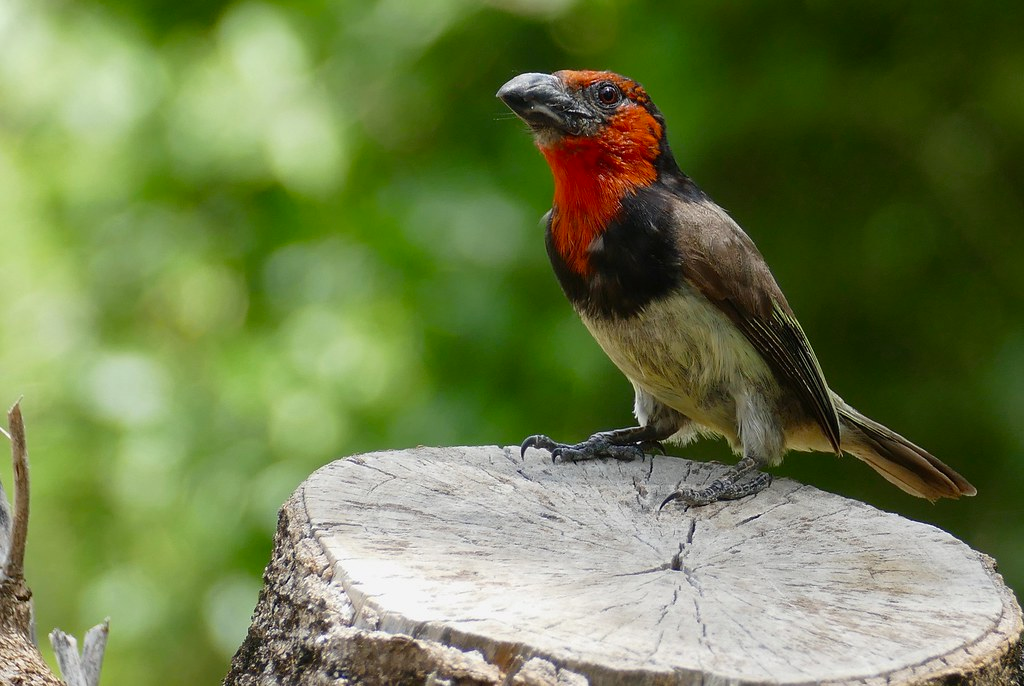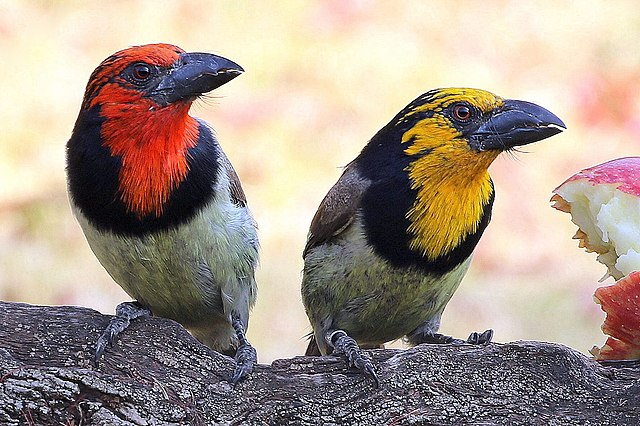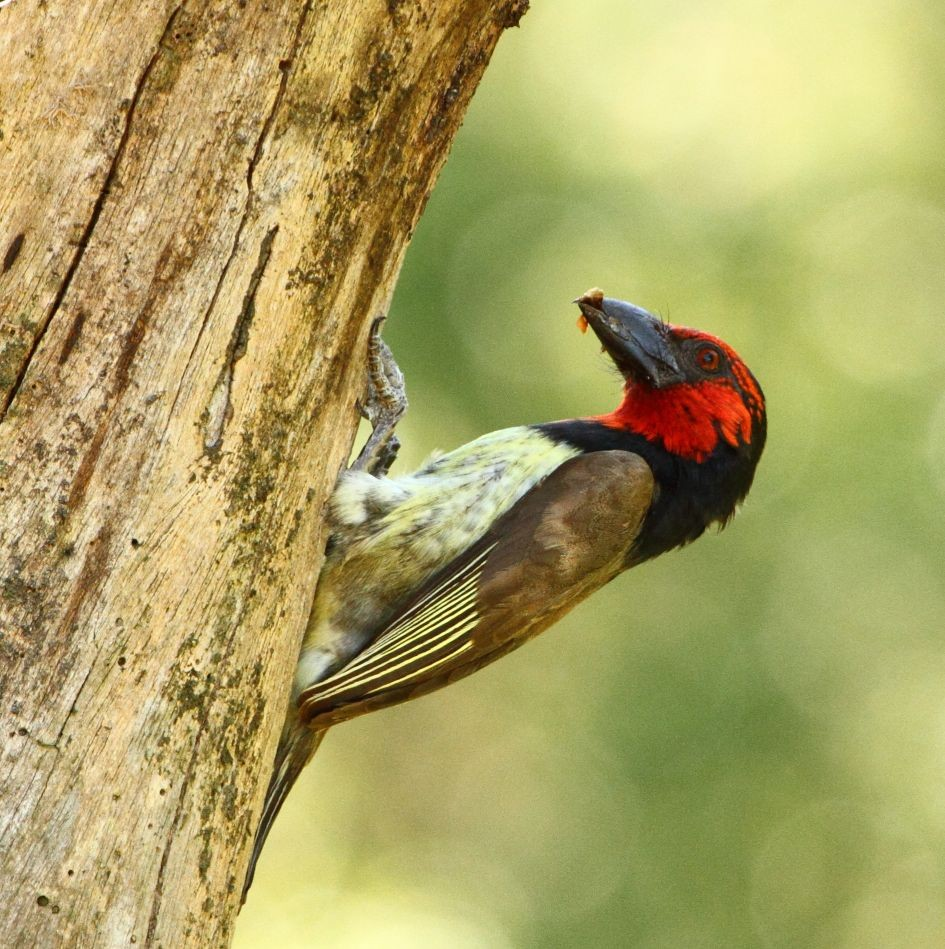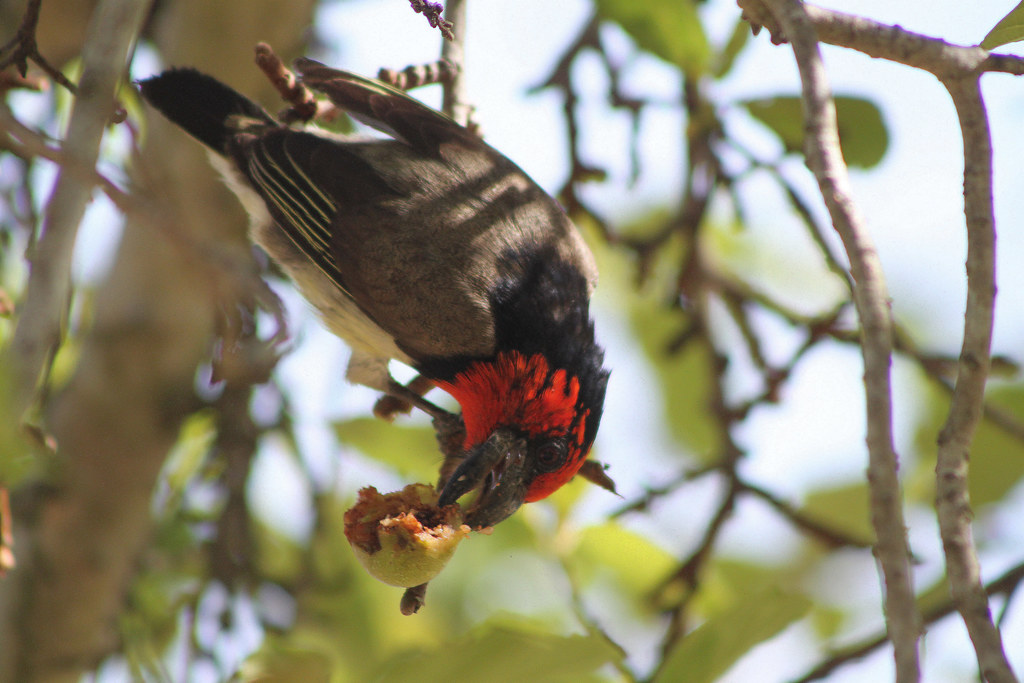Vibrant Plumage, Unique Call, and Eclectic Diet of the Black-Collared Barbet
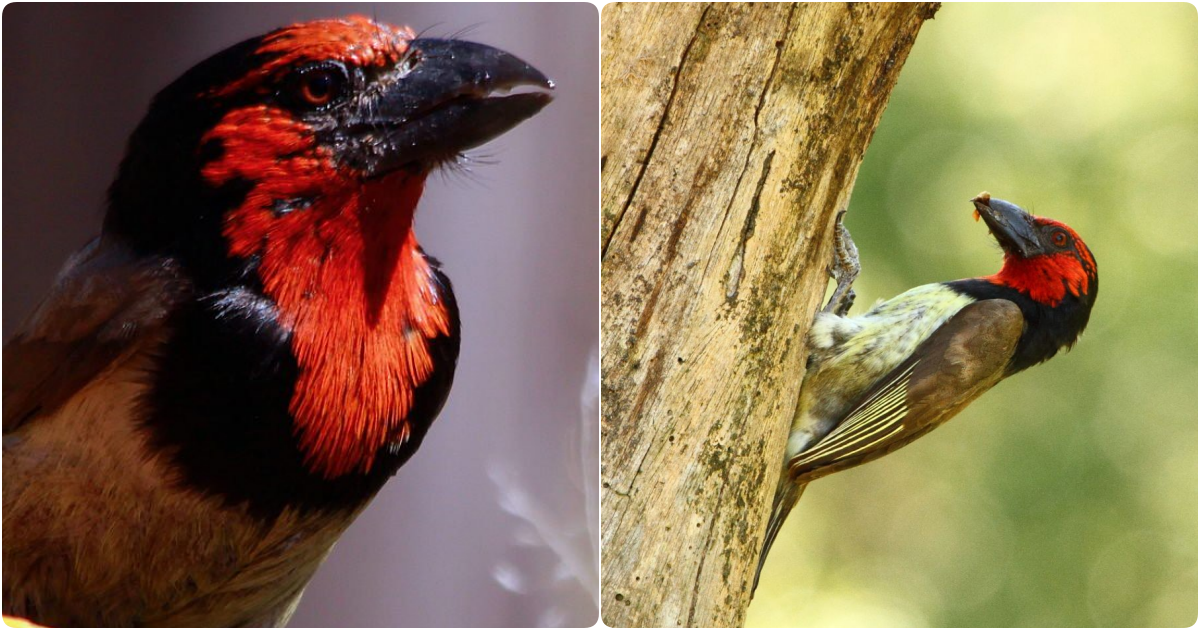
The Lybius torquatus, also known as the black-collared barbet, stands as a medium-sized avian wonder, characterized by its striking red facial markings. Measuring between 20 to 25 cm, this chunky bird sports a robust bill adorned with bristle fringes and a distinct black collar encircling its beak. Interestingly, the black-collared barbet showcases sexual monomorphism, displaying only subtle disparities between male and female individuals.
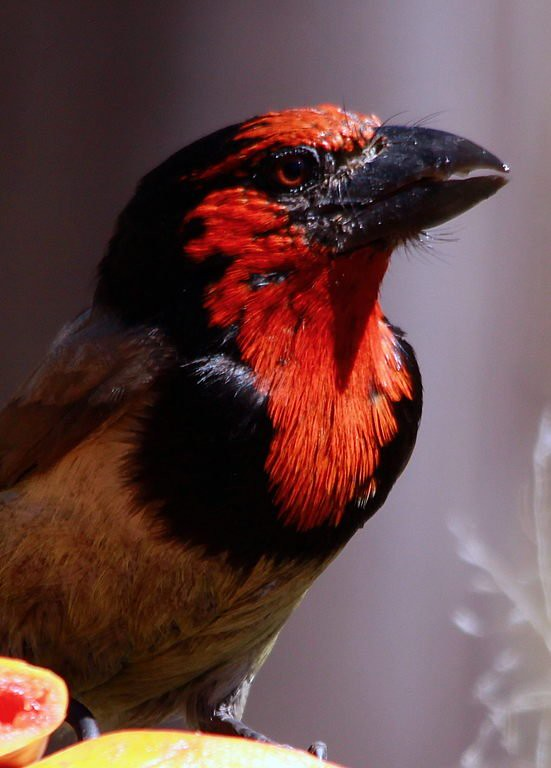
Found across sub-Saharan Africa, this charismatic bird thrives primarily in well-wooded habitats, with a penchant for riparian forests rich in fruit-bearing trees. It is not uncommon to spot them venturing into plantations in search of sustenance. The black-collared barbet’s diet is impressively diverse, encompassing whole fruits, vegetables, insects, centipedes, frogs, geckos, and even lizards.
The breeding season of this species falls between December and February, marked by their captivating “too-poudle” song, which is actually a delightful antiphonal duet. As the breeding season concludes, these resourceful birds carve out holes measuring 45 to 55 mm in dead tree trunks for nesting purposes.
A remarkable variant of this species is the yellow-headed form, although the red-faced variety is more common. Classified as of Least Concern on the IUCN Red List, the black-collared barbet captivates with its distinctive features and behaviors. If you’re curious to experience the allure of its unique call, you can listen to it in the captivating video provided below. 